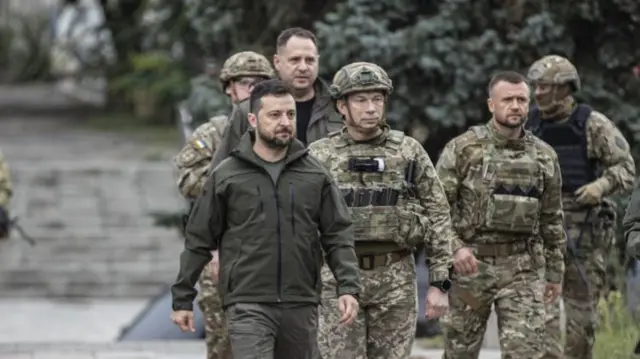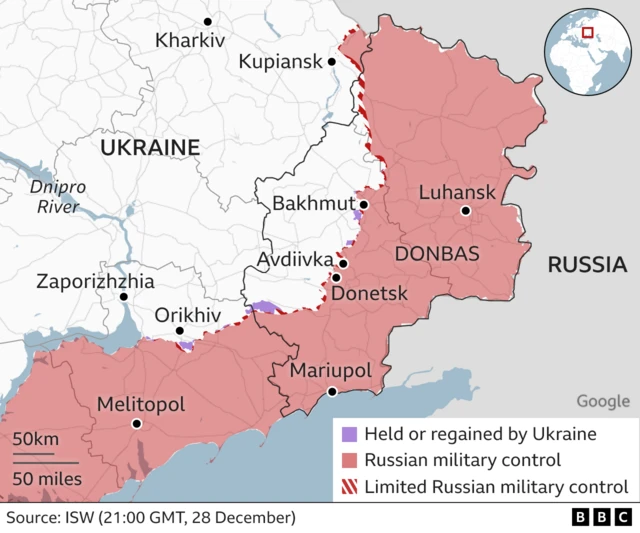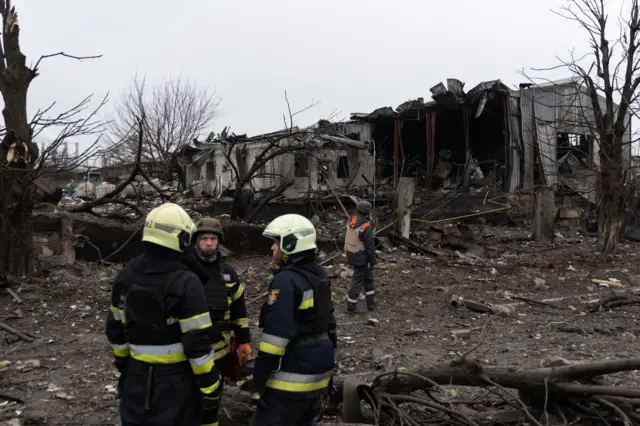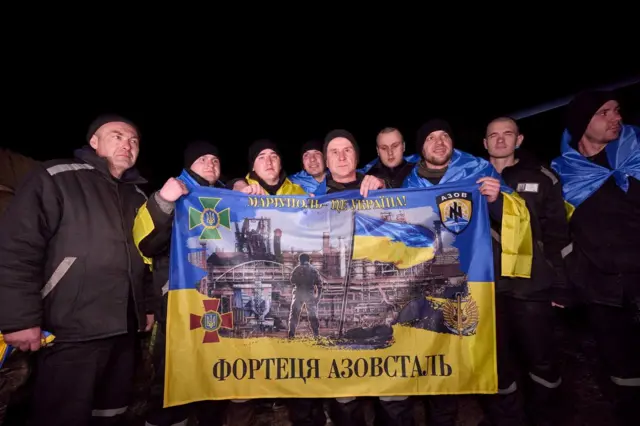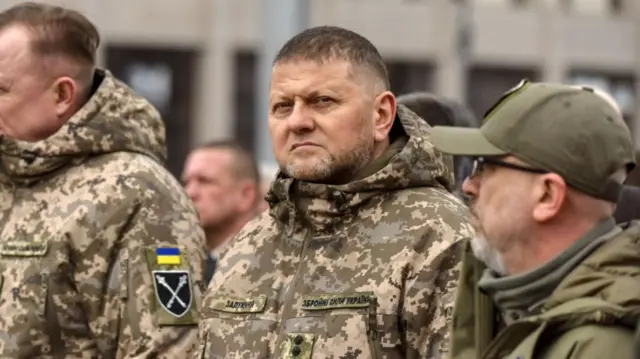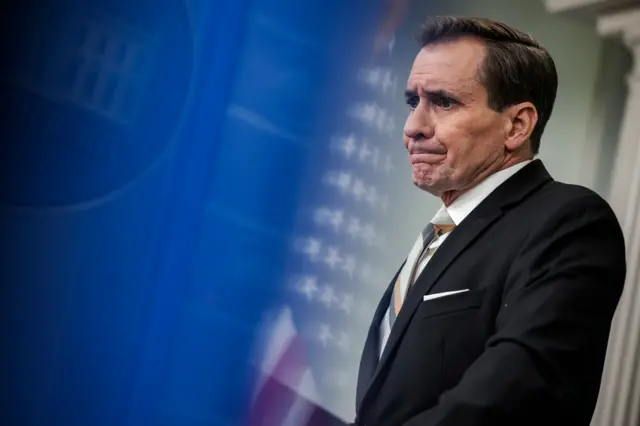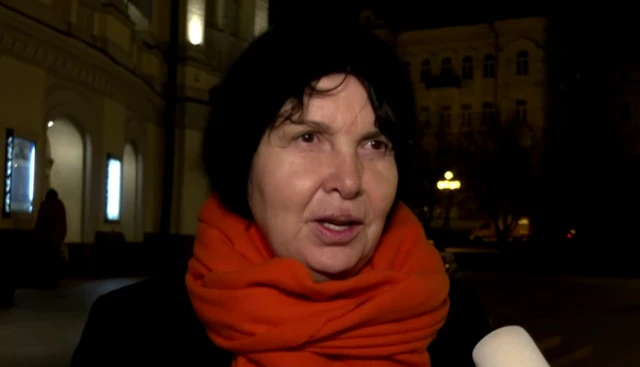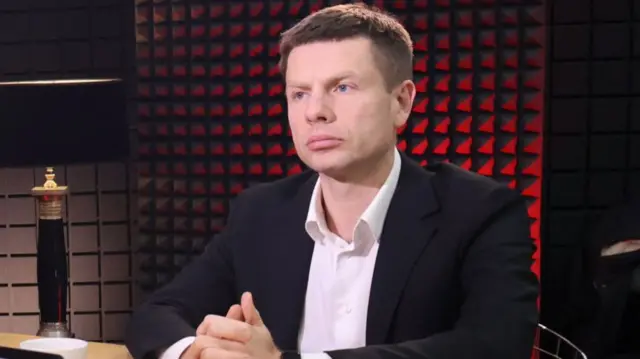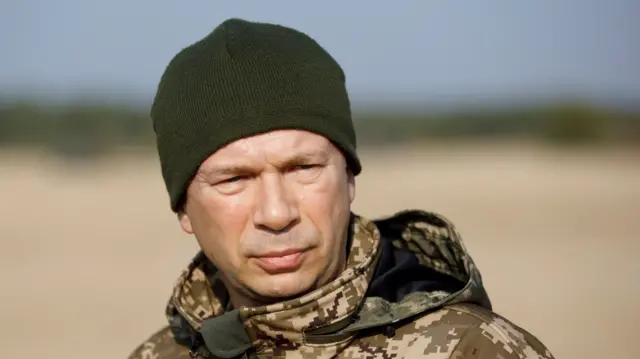
This was the sacking long rumoured and finally announcedpublished at 22:34 GMT 8 February 2024
 Sarah Rainsford
Sarah Rainsford
BBC Eastern Europe Correspondent, in Kyiv
Zelensky’s declaration of a "reset", starting with replacing his commander in chief, comes at a precarious time for Ukraine. It’s struggling to get funding and weapons from abroad and there’s fierce fighting on a largely static frontline.
But there’s little clear picture yet of how that reset will look or what it can achieve. And some think removing General Zaluzhnyi will produce a set-back, not progress.
The word stalemate seems key to this decision, though.
That was Zaluzhnyi’s own description of the state of play, militarily, and it wasn’t popular with his political bosses.
It’s not the message they accept or want to send.
As I understand it, Ukraine is looking to new military leadership for a plan that’s not about holding the line in the trenches - moving to a defensive position and rearming.
The aim is a plan that delivers movement forward. That doesn’t sound defeatist.
The other word I’ve heard mentioned here is realistic.
Planning for what you have in terms of soldiers and supplies, not demanding more that may never be delivered – whether that’s conscript soldiers, or shells and bullets.
There’s always talk of drones and their transformative power on the battlefield. That’s especially important when Western military aid is shrinking. But it’s no quick fix, either.
There have been rumours of the president’s testy relations with Zaluzhnyi for a long time.
Everyone close to Zelensky will say this is not political. That it’s nothing personal. That his only aim is to win the war for his country. They are very careful not to criticise Zaluzhnyi in public.
Perhaps General Syrskyi will be an easier character for the president to work with.
But can he produce any different results for Ukraine? Zelensky hopes so.
